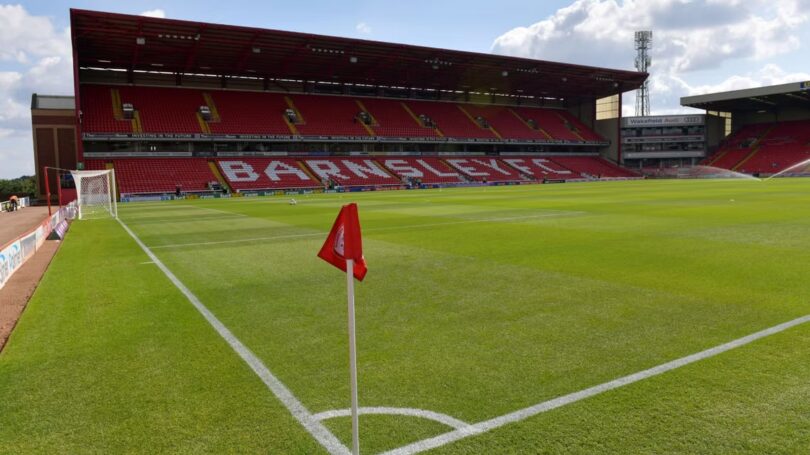Barnsley FC, a club once synonymous with Premier League football in the late 1990s, is now fighting for survival in the lower echelons of English football. Recently, the club’s financial struggles have come into sharper focus, with the phrase “having to live off scraps” being used by supporters, pundits, and club officials to describe their current plight. The Yorkshire-based team’s financial issues have escalated in recent years, leaving them reliant on a small budget, tight wage structure, and a model that often prioritizes youth development over high-profile signings.
While Barnsley’s financial situation is not unique to clubs operating outside the Premier League, the club’s specific challenges — from ownership changes to struggling matchday revenues — paint a stark picture of a club in transition, constantly grappling with the realities of financial instability.
The Financial Strain
One of the primary factors behind Barnsley’s financial struggles is their limited income streams, particularly when compared to wealthier clubs in the Championship or Premier League. Barnsley, like many clubs in League One and the Championship, struggles to generate substantial revenue from matchdays. Oakwell, their historic home, is often not filled to capacity, and despite the loyal following of their fanbase, attendances are rarely high enough to offset the costs associated with operating a professional football club. This issue is compounded by their lack of significant commercial partnerships or sponsorship deals, which are crucial for the financial health of any club.
The club’s reliance on player sales has become a cornerstone of their financial model. In recent years, Barnsley has sold key assets — such as players like Keiffer Moore, Connor Chaplin, and more recently, notable young talents — to balance their books. However, such sales, while temporarily providing cash injections, often leave the team with gaps in their squad, forcing them to make do with smaller budgets when it comes to replacements. Managerial strategies frequently center around developing young players, but this brings its own risks — and can be seen as a necessary evil when financial restrictions limit Barnsley’s ability to compete in the transfer market for more established players.
The Impact of Ownership and Governance
Barnsley’s ownership structure has also been a point of contention. In 2018, the club was purchased by the American-based company PAI Capital led by Chien Lee, who also owns stakes in a number of clubs worldwide. The ownership group has faced criticism for a perceived lack of investment in the club and for adopting a model that prioritizes cutting costs and maximizing resale value over long-term stability.
Barnsley fans have expressed frustration over the direction of the club under these owners, often feeling that they are being treated as a financial asset rather than a football club with a rich history. The owners have sought to implement a “data-driven” model, focusing on signing young, undervalued players with potential for future resale value. While this strategy has sometimes paid off with impressive signings like Cauley Woodrow and Alex Mowatt, it has also left the club exposed to the pressures of player sales and a lack of squad depth.
There have also been calls for a greater level of transparency and engagement from the owners. The feeling among some fans is that the club’s leadership is more interested in maximizing the profitability of the club than investing in the infrastructure or team-building required to sustain long-term success in the Championship or even League One.
The Struggle for Survival
Barnsley’s financial constraints have had a tangible impact on the field. The club’s limited resources often mean that they are forced to play a waiting game in the transfer market, picking up players who have been overlooked by other clubs or are free agents. This strategy, while allowing them to operate within their means, leaves them at a competitive disadvantage when compared to teams with greater financial clout.
Barnsley’s playing style, while often lauded for its emphasis on high pressing and attacking football, is often undermined by the squad’s lack of depth. Injuries to key players can have a devastating effect, as the club simply cannot afford to maintain the level of quality required to cope with the demands of a competitive league.
The club’s ongoing financial struggles also hinder the ability to attract or retain top managerial talent. In recent years, Barnsley has seen a series of managerial changes, with each new appointment tasked with operating under tight financial conditions. While this constant turnover can be disruptive, it also reflects the reality of working within the limitations set by the ownership.
A Call for Change
The phrase “living off scraps” speaks volumes about the club’s current predicament. For Barnsley, the future hinges on the ability to navigate these financial difficulties, either through an influx of new investment, better financial management, or a breakthrough on the pitch that could lead to promotion and greater revenue.
Ultimately, for Barnsley FC to move beyond this financial quagmire, significant changes need to take place, both on and off the pitch. A more sustainable business model, improved fan engagement, and perhaps most importantly, a shift in ownership structure that prioritizes the long-term health of the club over short-term financial gains could be the key to Barnsley’s revival. Until then, the club will likely continue “living off scraps,” fighting against the odds in the hope of a brighter future.







